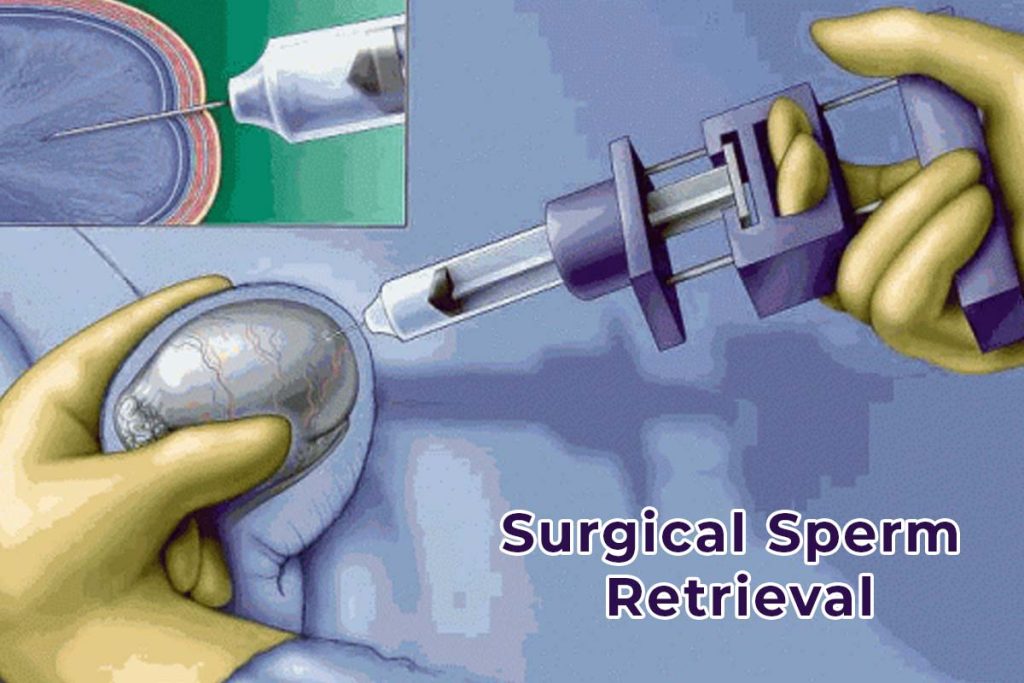
Looking for the IVF treatment low cost in Guntur, then you must have a visit to Birth Help Fertility Hospital for the Surgical Sperm Retrieval. To know, more about it, let’s dive for more information.
Introduction
Male infertility can be a challenging issue for couples trying to conceive. Fortunately, advancements in medical science have paved the way for effective treatments. One such solution is surgical sperm retrieval.
In this comprehensive guide, we’ll explore the intricacies of these procedures and shed light on why the Birth Help Center stands out as a premier destination for TESA (Testicular Sperm Aspiration) and MESA (Micro Epididymal Sperm Aspiration), priding itself on providing IVF treatment low cost in Guntur.
Explanation of Surgical Sperm Retrieval Procedure
Sperm retrieval procedures involve the extraction of sperm directly from the male reproductive system. Whether due to obstructive azoospermia, non-obstructive azoospermia, or other factors, these techniques play a crucial role in helping couples achieve their dream of parenthood.
- TESA (Testicular Sperm Aspiration): TESA is a minimally invasive procedure that retrieves sperm directly from the testicles. It is commonly used when the male partner has obstructive azoospermia, where sperm production is normal but blocked from reaching the ejaculate. During TESA, a fine needle is inserted into the testicular tissue, and sperm are The procedure is relatively quick and well-tolerated by patients.
- MESA (Micro Epididymal Sperm Aspiration): MESA is another surgical technique used to collect Unlike TESA, MESA focuses on obtaining sperm from the epididymis, a coiled tube where sperm mature and are stored. MESA is typically performed under general anesthesia. A small incision is made in the scrotum, and the epididymal tubules are directly accessed. The surgeon carefully aspirates sperm, which can then be used for assisted reproductive techniques such as IVF (In Vitro Fertilization) or ICSI (Intracytoplasmic Sperm Injection).
Importance of Timing in Sperm Retrieval
Timing is everything when it comes to sperm retrieval. The success of these procedures hinges on precise scheduling. We’ll look deeper into why the timing matters and how it impacts the outcome.
1. Optimal Sperm Quality:
The timing of sperm retrieval plays a crucial role in ensuring the highest quality of Sperm production occurs in cycles, and there are peak periods when sperm count, motility, and morphology are at their best.
By scheduling retrieval during these optimal windows, fertility specialists can collect healthier sperm, which significantly improves the chances of successful fertilization.
2. Assisted Reproductive Techniques (ART):
ART procedures, such as in vitro fertilization (IVF) and intracytoplasmic sperm injection (ICSI), rely on retrieved sperm. Proper timing ensures that sperm samples are available when needed for these treatments.
For example, during IVF, retrieved sperm are combined with eggs in the Precise timing ensures that both components are ready for fertilization simultaneously.
3. Hormonal Regulation:
Hormones play a vital role in sperm production. Timing sperm retrieval to coincide with hormonal peaks ensures better sperm maturation and function.
Fertility specialists monitor hormone levels and adjust retrieval schedules accordingly.
4. Surgical Procedures:
Surgical sperm retrieval techniques, such as testicular sperm extraction (TESE) or epididymal sperm aspiration (TESA), require precise timing.
Coordinating with the patient’s overall treatment plan and ensuring that the procedure aligns with other fertility interventions is essential.
5. Patient-Specific Considerations:
Each individual’s reproductive health Factors like age, medical history, and overall health influence the timing of sperm retrieval.
Personalized approaches ensure that the procedure optimally suits the patient’s unique circumstances.
Factors Influencing the Timing of Sperm Retrieval
Several variables come into play when determining the right time for sperm retrieval:
- Hormonal Levels: The male partner’s hormonal profile affects sperm Timing the procedure during optimal hormonal conditions enhances the chances of successful sperm retrieval.
- Ovulation: For couples undergoing IVF or ICSI, aligning sperm retrieval with the female partner’s ovulation cycle is This ensures that retrieved sperm can be used during fertilization.
- Health and Lifestyle: The patient’s overall health, stress levels, and lifestyle choices (such as smoking or alcohol consumption) can impact sperm Addressing these factors before scheduling the procedure is essential.
Optimal Timing for Different Procedures
Different sperm retrieval techniques have varying optimal timelines. Let’s break down the recommended windows for each procedure:
- TESA: Ideally performed a day or two before egg retrieval in IVF cycles.
- MESA: Scheduled in coordination with the female partner’s ovulation cycle.
Recommended Sperm Retrieval Procedure
Choosing the right procedure is critical. Our experienced team at Birth Help Center evaluates individual cases to recommend the most suitable approach. Factors like diagnosis, patient health, and preferences guide this decision-making process.
Criteria for Selecting the Appropriate Procedure
What criteria do we consider when selecting the best sperm retrieval method for a patient? We’ll explore the key factors that guide our decisions, ensuring personalized care and optimal results.
Advantages and Disadvantages of Each Procedure
Every technique has its pros and cons. By understanding the advantages and disadvantages of TESA and MESA, patients can make informed choices aligned with their unique circumstances.
Advantages:
Higher Sperm Yield:
- MESA provides a higher chance of retrieving motile and viable sperm.
- It is especially beneficial for men with non-obstructive azoospermia, where sperm production is impaired.
Precise Sperm Collection:
- MESA involves microsurgical techniques to access the epididymis.
- The surgeon can precisely locate and collect sperm from specific epididymal tubules.
Suitable for Complex Cases:
- MESA is preferred when TESA fails or when obstructive azoospermia is not the primary cause.
- It is effective even in cases of congenital absence of the vas deferens or previous failed sperm retrieval attempts.
Disadvantages:
Invasive Procedure:
- MESA requires a small incision to access the epididymis.
- Recovery time may be longer compared to TESA.
Higher Cost:
- Due to the microsurgical nature and specialized equipment, MESA tends to be more expensive than TESA.
Expertise-Dependent:
- MESA demands skilled microsurgeons.
- The success of the procedure relies on the surgeon’s experience and precision.
Overview of Sperm Retrieval Procedure
Let’s dive into the specifics of each sperm retrieval procedure offered at Birth Help Center:
- Testicular Sperm Aspiration (TESA): A minimally invasive technique that retrieves sperm directly from the TESA is suitable for men with obstructive azoospermia.
- Percutaneous Epidydimal Sperm Aspiration (PESA): A procedure that collects sperm from the PESA is an option for patients with epidydimal blockage.
- Testicular Sperm Extraction (TESE): Involves extracting sperm from testicular tissue.
Your journey to parenthood begins with a single click. Explore the Birth Help Center’s fertility solutions now! Meet our Specialists by booking an appointment.
Services

With a solid foundation of 7 years of experience, Birth Help Fertility Centre confidently elevates your chances of parenthood using state-of-the-art IVF techniques and technology.
Our Services
Quick Contact
If you have any questions or need help, feel free to contact us for medical assistance.
- +91 9391218214
4/5 Arundelpet, Guntur, Andhra Pradesh,
522007.
©2024 birthhelp.in, All Rights Reserved.

